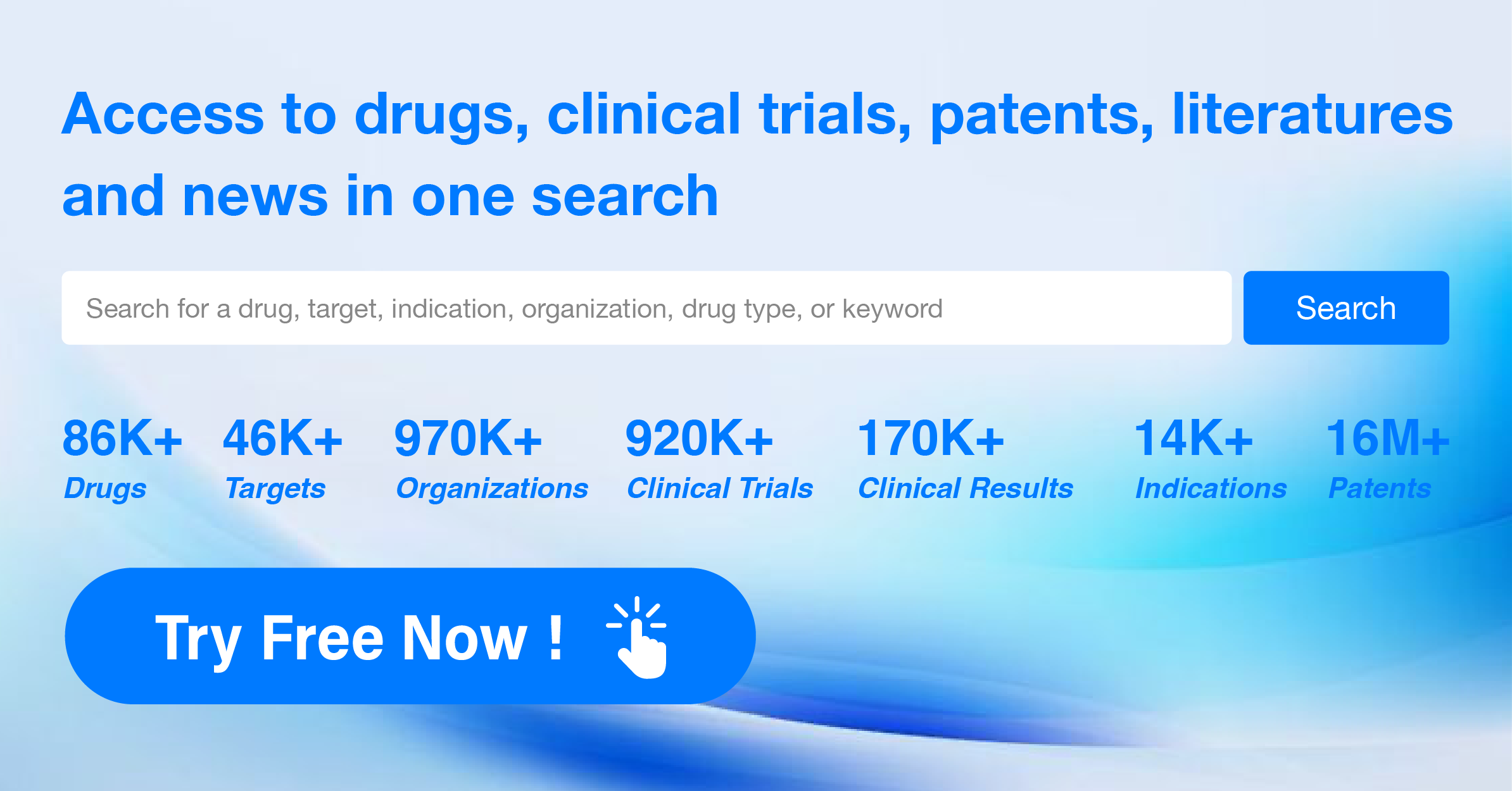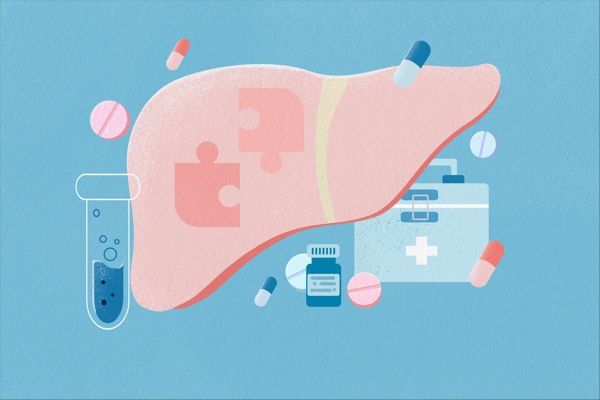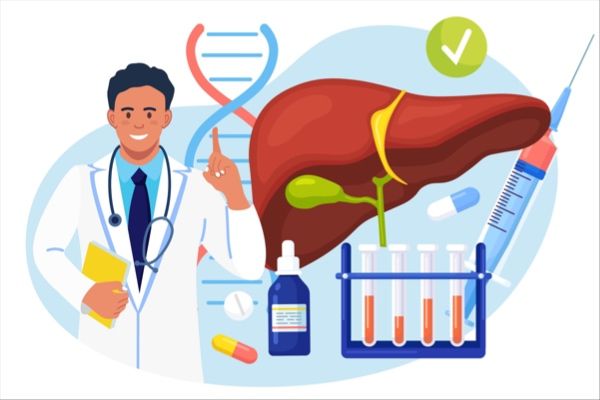Pharma Frontiers: Daily Digest of Global Pharmaceutical News - Jun 13
1.Regeneron/Sanofi Humanized Monoclonal Antibody Drug Kevzara Receives Additional FDA Approval!
On June 12th, Regeneron Pharmaceuticals announced that the U.S. Food and Drug Administration (FDA) has approved Kevzara (sarilumab), a humanized monoclonal antibody developed jointly with Sanofi, for the treatment of active polyarticular juvenile idiopathic arthritis (pJIA) in patients weighing 63 kg or more. This condition is characterized by arthritis affecting multiple joints. Patients with pJIA may experience symptoms such as joint pain, stiffness, and swelling, which can limit their mobility and interfere with daily activities. The chronic nature of the disease poses a risk of permanent joint damage and may hinder normal growth and development.
The FDA's approval for this indication is based on robust, well-controlled trial results, pharmacokinetic data from adult rheumatoid arthritis (RA) patients, and comprehensive pharmacokinetic, pharmacodynamic, dose-finding, and safety studies in pediatric pJIA patients. Compared to RA patients, no new adverse reactions or safety concerns were identified in the pJIA patient population. The most common adverse reactions in pJIA patients include nasopharyngitis, neutropenia, upper respiratory tract infection, and erythema at the injection site.
Kevzara is a humanized monoclonal antibody co-developed by Regeneron and Sanofi. It binds to the interleukin-6 (IL-6) receptor, thereby inhibiting the IL-6 mediated signaling pathway. In the human body, IL-6 is a cytokine that plays a pivotal role in the inflammatory response. When its expression levels are persistently elevated, it can lead to various inflammatory reactions, including those associated with rheumatoid arthritis.
2.Junshi Biosciences' Anti-PD-1 Antibody Receives Approval for New Indication: First-Line Treatment for Small Cell Lung Cancer!
On June 12, the official website of the National Medical Products Administration (NMPA) of China announced that a new indication application for Junshi Biosciences’ anti-PD-1 monoclonal antibody, Toripalimab, has been approved for market release. According to an earlier press release from Junshi Biosciences, the newly approved indication is for the first-line treatment of extensive-stage small cell lung cancer (ES-SCLC) in combination with etoposide and platinum-based chemotherapy.
Lung cancer ranks among the top malignancies in terms of both incidence and mortality. Small cell lung cancer (SCLC) is the most aggressive subtype of lung cancer, accounting for approximately 15%-20% of all lung cancer cases. SCLC is characterized by rapid progression, early metastasis, and poor prognosis. SCLC is classified into limited-stage (LS-SCLC) and extensive-stage (ES-SCLC). For LS-SCLC patients, current standardized chemotherapy and radiotherapy protocols achieve an objective response rate of approximately 90% and a 5-year survival rate of about 25%. However, the majority of patients are diagnosed with ES-SCLC at the time of presentation, with a median survival time of less than one year and a 2-year survival rate of below 10%, posing a significant clinical challenge.
Toripalimab injection is a monoclonal antibody targeting PD-1. As of May this year, Toripalimab has been approved for eight indications in mainland China, covering melanoma, nasopharyngeal carcinoma, urothelial carcinoma, esophageal squamous cell carcinoma, non-small cell lung cancer, renal cell carcinoma, among others. It has also received approval for nasopharyngeal carcinoma in the United States. Additionally, a new indication application for PD-L1 positive, treatment-naïve metastatic or recurrent metastatic triple-negative breast cancer is currently under review. According to earlier press releases from Junshi Biosciences, this latest approval marks the tenth market application for Toripalimab submitted in China, specifically for its use in first-line treatment of extensive-stage small cell lung cancer in combination with etoposide and platinum-based chemotherapy.
3.Kyowa Kirin's New Calcimimetic Agent Evocalcet Receives Approval for Marketing Authorization
On June 12th, the latest announcement on the official website of the China National Medical Products Administration (NMPA) confirmed that the new drug marketing application for Evocalcet tablets, a class 5.1 new drug submitted by Kyowa Kirin, has been officially approved. According to publicly available information from Kyowa Kirin, Evocalcet is a novel calcimimetic agent. It has been approved in China for the treatment of secondary hyperparathyroidism (SHPT), a significant manifestation of mineral metabolism disorder and a common, severe complication in patients with chronic kidney disease (CKD).
Calcimimetics are allosteric agonists of the calcium-sensing receptor (CaSR) that enhance the sensitivity of CaSR to calcium ions, directly inhibiting the secretion of parathyroid hormone (PTH) and the proliferation of parathyroid cells. According to Kyowa Kirin's public data, Evocalcet was originally discovered by Mitsubishi Tanabe Pharma Corporation. In 2008, Kyowa Kirin obtained the rights to collaborate on research, development, commercialization, and production of Evocalcet in Japan and certain regions of Asia through a licensing agreement.
As a second-generation derivative of Cinacalcet (a previously approved calcimimetic agent), Evocalcet not only effectively lowers parathyroid hormone, calcium levels, and fibroblast growth factor 23 (FGF23) but also reduces phosphorous levels by inhibiting bone resorption. Additionally, it shows marked improvements in bioavailability and significantly reduces gastrointestinal side effects and drug-drug interactions.
According to the China Drug Clinical Trial Registration and Information Disclosure Platform, Kyowa Kirin has completed an international, multicenter, Phase 3 clinical study in China. This study focused on the treatment of secondary hyperparathyroidism in patients with chronic kidney disease undergoing maintenance dialysis. The trial aimed to evaluate the efficacy and safety of once-daily oral administration of Evocalcet for 52 consecutive weeks, using a randomized, double-blind, dose-titrated, parallel-group design with Cinacalcet Hydrochloride as the active control.
4.Lilly's New Diabetes Drug, Glucagon Nasal Powder Spray, Approved in China for Severe Hypoglycemia Treatment
On June 12, the latest public information on the official website of the National Medical Products Administration (NMPA) of China indicated that the marketing application for the new drug Glucagon Nasal Powder Spray, submitted by Eli Lilly and Company, has been approved. According to an earlier press release from Lilly, this medication, commercially known as Baqsimi, is a glucagon nasal powder spray administered via nasal delivery. The newly approved indication is for the treatment of severe hypoglycemia in diabetes patients aged 4 years and older.
Studies show that hypoglycemia lasting for 30 minutes can result in irreversible brain damage. Individuals experiencing severe hypoglycemia typically require glucagon injections, which involve complex procedures such as reconstitution, degassing, and specialized injection techniques. These procedures do not meet the immediate emergency needs for severe hypoglycemia. Baqsimi, a glucagon nasal powder spray, provides a nasal delivery method. According to previously published information from Lilly, it uses a single-dose dispenser that stimulates the liver to release stored glucose into the bloodstream, thereby increasing the patient's blood sugar levels.
In emergency treatments for severe hypoglycemia, this medication is passively absorbed through the patient's nasal mucosa without the need for inhalation. Additionally, the medication can be administered by individuals without specialized skills, taking only 30 seconds to complete the administration with a success rate of over 90%. Research indicates that both glucagon injections and Baqsimi can quickly and effectively raise blood sugar levels in patients with severe hypoglycemia. However, compared to glucagon injections, the risk of secondary hyperglycemia (defined as blood sugar levels exceeding 10mmol/L one hour after administration) is relatively lower in patients using Baqsimi. Moreover, Baqsimi has a small volume, can be stored at room temperature, is easy to carry, and has a fixed single-dose of 3 milligrams (with no need for suspension).
5.Akeso Biopharma Announces Latest Follow-up Data for PD-1/CTLA-4 Bispecific Antibody Cadonilimab
On June 12, Akeso Biopharma announced that the results of its self-developed PD-1/CTLA-4 bispecific antibody Cadonilimab injection, in combination with chemotherapy as a first-line treatment for unresectable locally advanced, recurrent, or metastatic gastric or gastroesophageal junction (G/GEJ) adenocarcinoma, were published in the international medical journal "Nature Medicine." The data presented in this journal article extend the median follow-up period to 29.2 months, further highlighting the long-term survival efficacy of Cadonilimab. According to the "Global Cancer Statistics 2020," G/GEJ adenocarcinoma is the fifth most common cancer worldwide and the fourth leading cause of cancer death. Advanced G/GEJ adenocarcinoma has a poor prognosis with limited treatment options and a median overall survival (mOS) of approximately one year. Previously, at the 2023 American Society of Clinical Oncology (ASCO) Annual Meeting, the 24-month follow-up survival data for the COMPASSION-04/AK104-201 study had already been released. The results demonstrated significant long-term benefits across the entire population (regardless of PD-L1 expression): mOS was 17.41 months, median progression-free survival (mPFS) was 9.2 months, 12-month OS rate was 61.4%, objective response rate (ORR) was 68.2%, and disease control rate (DCR) reached 92%. Additionally, the product showed excellent efficacy in the PD-L1 low-expression and negative populations. The median follow-up period for the data published in this journal article has been further extended to 29.2 months. The results indicate that Cadonilimab's long-term survival efficacy advantage has been further highlighted: regardless of PD-L1 expression, mOS was 17.48 months, and the 12-month OS rate was 61.8%; for patients with PD-L1 CPS≥5, mOS was 20.32 months; for patients with PD-L1 CPS<1, the survival benefit was encouraging, with mOS at 17.64 months. Compared to anti-PD-1 monoclonal antibodies, no new safety signals were observed.
6.Coherent Biopharma's Anti-Tumor Drug Bi-XDC Receives FDA Approval for Clinical Trials in the USA
On June 12, Coherent Biopharma announced that the United States FDA has approved a Phase 1/2 clinical trial to evaluate the combination therapy of CBP-1018 and Enzalutamide. This approval is based on the safety, efficacy, and clinical pharmacology data of CBP-1018 as a monotherapy. Coherent Biopharma will continue to assess the safety, tolerability, pharmacokinetics, and efficacy of the combination therapy in patients with metastatic castration-resistant prostate cancer (mCRPC). In a prior Phase 1 clinical study of CBP-1018 as a monotherapy for mCRPC, the disease control rate (DCR) reached 100%.
CBP-1018 is a next-generation dual-ligand small molecule drug conjugate (Bi-XDC) developed by Coherent Biopharma. The two ligands specifically target the Prostate-Specific Membrane Antigen (PSMA) receptor and Folate Receptor alpha (FRα), respectively, and the small molecule toxin is MMAE. PSMA is highly and specifically expressed on the surface of prostate cancer cells and is of significant research value in the molecular imaging and targeted therapy of prostate cancer. FRα is a glycoprotein that mediates the endocytosis of folate and is highly expressed on the surface of various malignant tumor cells. Under Coherent Biopharma's dual-target mechanism, CBP-1018 can more precisely identify and act on tumor cells. Enzalutamide, an androgen receptor inhibitor, is widely used clinically to treat metastatic castration-resistant prostate cancer, and its combination with Bi-XDC is expected to enhance the synergistic effect of both drugs, providing better therapeutic outcomes.
CBP-1018 has shown considerable anti-tumor activity and good safety in preclinical studies. As a monotherapy, it has already demonstrated promising preliminary efficacy in clinical settings. According to data presented at the 2024 American Society of Clinical Oncology (ASCO) conference, 52% of mCRPC patients in the ≥0.14 mg/kg dose group experienced a PSA decline following CBP-1018 monotherapy. Among those patients, 9 had measurable lesions, with objective response rates (ORR) and disease control rates (DCR) of 33.3% (3/9) and 100% (9/9), respectively. Across all evaluable mCRPC patients, the median radiographic progression-free survival (rPFS) was 9.2 months.
How to obtain the latest research advancements in the field of biopharmaceuticals?
In the Synapse database, you can keep abreast of the latest research and development advances in drugs, targets, indications, organizations, etc., anywhere and anytime, on a daily or weekly basis. Click on the image below to embark on a brand new journey of drug discovery!




